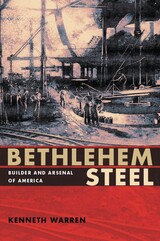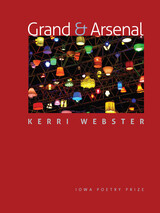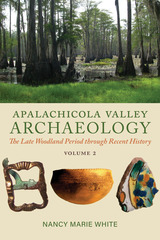
In Bethlehem Steel, Kenneth Warren presents an original and compelling history of a leading American company, examining the numerous factors contributing to the growth of this titan and those that eventually felled it—along with many of its competitors in the U.S. steel industry.
Warren considers the investment failures, indecision and slowness to abandon or restructure outdated “integrated” plants plaguing what had become an insular, inward-looking management group. Meanwhile competition increased from more economical “mini mills” at home and from new, technologically superior plants overseas, which drove world prices down, causing huge flows of imported steel into the United States.
Bethlehem Steel provides a fascinating case study in the transformation of a major industry from one of American dominance to one where America struggled to survive.

Grand & Arsenal begins “Bless me I am not myself,” but it is not long before the probability of being blessed is revealed to be as remote as the concept of a whole self. Thus begins the book’s defining struggle, enacted by a multitude of voices which move from rush to stumble and back again—meanwhile using all the tools we as a culture use to hold fear at arm’s length.
We hear a familiar irony, as in “On a trip West, porn in the hotel room. I can take or leave it. The climax that puts me in the seats? World’s end.” We hear humor, as in “I believed in . . . / . . . a certain apocalypse not so much foretold as crafted / by large-brained monkeys.” We hear understatement, as in “knowing it does not matter / in the grand—she would say scheme, I would say / mishap—.” Most importantly, though, these poems allow for the fleeting triumph of an undefended voice, which appears often to emerge tentatively from a sort of exhausted collapse.
READERS
Browse our collection.
PUBLISHERS
See BiblioVault's publisher services.
STUDENT SERVICES
Files for college accessibility offices.
UChicago Accessibility Resources
home | accessibility | search | about | contact us
BiblioVault ® 2001 - 2024
The University of Chicago Press









